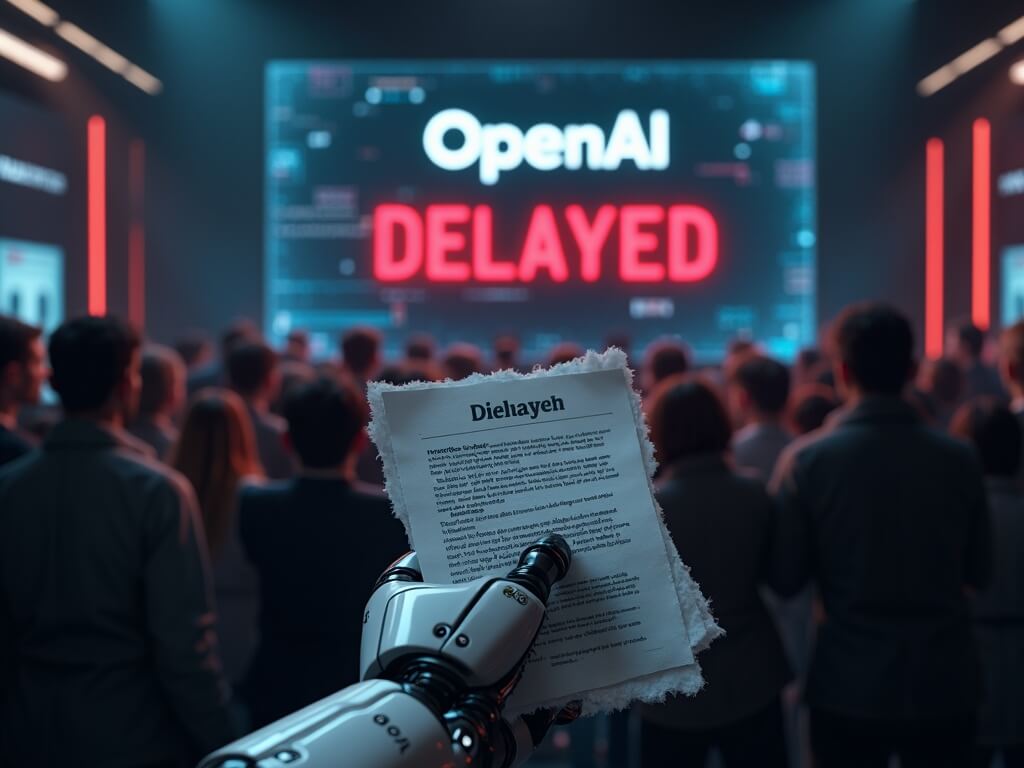The Unveiled Delay: OpenAI’s Recent Announcement
In a shocking turn of events, OpenAI has once again postponed the release of its anticipated open weight model, citing the need for further “safety tests.” This delay has stirred a wave of speculation and concern within the tech community. Critics argue whether the claim of safety risks holds substantial ground or if it cloaks other strategic motives.
Understanding OpenAI’s Safety Concerns
Why Safety Matters: AI models, particularly those as advanced as OpenAI’s, have the power to reshape industries and influence societal dynamics. With great power comes great responsibility—ensuring these models are safe from misuse or unintended consequences is paramount. The company’s decision highlights their commitment to responsible AI deployment, focusing on mitigating risks associated with its open weight models, such as data privacy breaches, misinformation proliferation, and algorithmic biases.
The Nature of Safety Tests: OpenAI’s safety tests are rigorous processes designed to simulate real-world scenarios in which the AI might operate. This involves stress testing under varied conditions, ethical impact assessments, and analyzing the model’s interaction with diverse datasets. These tests aim to identify potential risks before the AI is deployed in open environments.
The Broader Picture: The Strategic Implications
Competitive Edge: Some industry experts speculate that the delay might also align with strategic positioning. By withholding the model while running extensive tests, OpenAI may seek to maintain a competitive edge over rivals in the rapidly evolving AI landscape. This cautious approach could solidify OpenAI’s reputation as a leader in ethical AI, potentially attracting more partnerships and investments.
Market Dynamics: While the delay fuels frustration among developers and researchers eagerly awaiting access, it also raises questions about the volatility and governance of AI innovations. OpenAI’s move can be seen as a proactive measure to align technological breakthroughs with ethical standards, influencing similar practices across the industry.
Community Reactions: Mixed Feelings and Industry Expectations
The delay has elicited mixed reactions across the tech spectrum. While some praise OpenAI for prioritizing safety over speed, others express disappointment over the postponement. Critics argue that frequent delays might eventually lead to missed opportunities and diminished trust among stakeholders, particularly those relying on the model for cutting-edge applications.
Entrepreneurs and academics are watching closely, anticipating a ripple effect that may influence project timelines, innovation speed, and market readiness. The importance of balancing swift technological advancement with robust safety protocols has never been more pronounced.
Looking Ahead: What Does the Future Hold?
As the conversation around AI safety intensifies, OpenAI’s recent move serves as a telling benchmark for the industry’s future. Whether this decision stems from genuine safety concerns or is a strategic play remains debatable, but its impact on technology governance will likely unfold over the coming years.
The Path Forward: For the moment, OpenAI is setting a precedent that may likely inspire both accountability and introspection within tech circles. As this narrative develops, it remains crucial for industry professionals and policymakers to engage in collaborative dialogues to ensure AI advancements align with ethical standards, safeguarding a future where technology serves humanity’s best interests.
OpenAI’s delayed release, although controversial, underscores the evolving landscape of AI development where safety, strategy, and innovation are deeply interwoven. As we await further updates, the tech world watches with bated breath, eager to see how this story unfolds.

